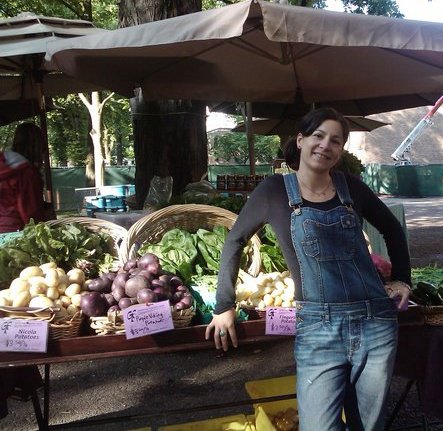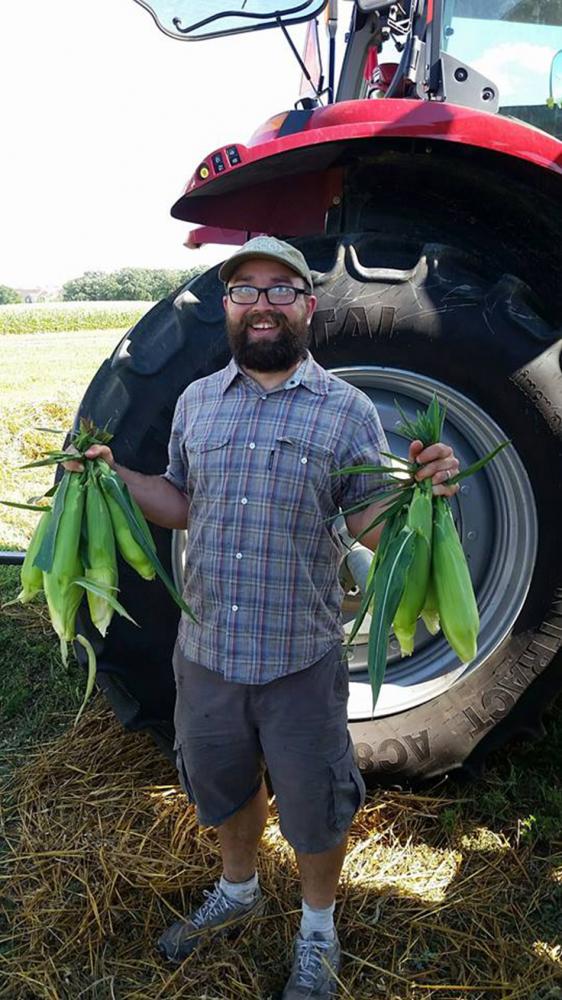About NOVIC and Our Collaborators
The Northern Organic Vegetable Improvement Collaborative (NOVIC) joins researchers and farmers in Northern U.S. states to address organic farmers’ seed and plant breeding needs. Our collaborative includes researchers and educators from Oregon State University, University of Wisconsin-Madison, Cornell University, Washington State University, Organic Seed Alliance, and the USDA. We are partnering with over 30 organic farmers to breed new varieties, identify the best performing existing varieties for organic agriculture, and educate farmers on organic seed production and plant variety improvement.
Why NOVIC?
While organic varieties must meet unique challenges and consumer demands, few breeding programs are focused on specifically breeding for organic agriculture. Organic farmers are challenged by the lack of organic seed sources and scarcity of information on variety performance under organic conditions. NOVIC breeding and trialing activities are based on the idea that organic systems represent a different environment from conventional systems. Due to significant genotype by system interaction, varieties intended for organic production should be bred in those conditions for optimal performance and adaptation. This project works with organic growers to increase their market share with improved varieties that are adapted specifically to organic systems and meet the need for disease resistance, nutritional and flavor quality, and contemporary productivity traits crucial to modern markets.
How NOVIC Works
Participatory plant breeding is an integral part of the project with farmer-breeders engaging in developing open-pollinated tomato, cabbage, winter squash, pepper, and sweet corn varieties for their environments. NOVIC collaborators work with farmers regionally on breeding, trials, and education while sharing resources and information with farmers, seed companies, and research and education organizations nationally.
Variety Trials
NOVIC conducts vegetable variety trials on certified organic ground, at research stations, and on cooperating organic farms, using the mother-daughter trailing method adopted from international agriculture. Trials include the five crops in our breeding programs and one additional crop chosen by farmers regionally.
Organic Variety Trial Database
Results for NOVIC variety trials are published in the Organic Variety Trial Database, a national database of organic variety trial results maintained by collaborators and our partners at eOrganic. The public database is an excellent resource for sharing information between organic growers and researchers. Find it at http://varietytrials.eorganic.info/.
Organic Breeding
Our overall goal is to develop open-pollinated varieties specifically adapted to meet the needs of organic growers. NOVIC breeding efforts focus on key traits to improve market presence for six vegetable crops in four states.
- Bell Pepper -- Early, high yielding blocky red types with great flavor
- Cabbage -- Purple storage type with exceptional color, flavor, and field holding and storage capacity
- Sweet Corn -- High quality, early maturing hybrid and open-pollinated
- Tomato -- Late blight resistant, adapted to the Pacific Northwest
- Winter Squash -- Short season, disease resistant acorn and delicata types
- Farmers' Choice by State -- Farmer participants in each state choose a vegetable
Farmer Benefits
- Increase seasonal, local vegetable production in across the Northern U.S. by breeding for season extension and adaptation to organic conditions.
- Assist in organic farms’ compliance with organic regulations by helping farmers learn how organically available varieties perform under organic conditions.
- Improve farmers’ success with on-farm seed and plant variety improvement projects by extending outreach and education resources.
Outreach & Education
Field Days and Workshops
NOVIC collaborators host regional variety trial field days to share trial results with farmers, researchers, students, chefs, certifiers, and seed industry professionals. We also host courses for farmers and agricultural students to gain seed production and plant variety improvement skills.
Collaborators
The Researchers
Project Director
Dr. Jim Myers, Oregon State University, Department of Horticulture
Micaela Colley, Organic Seed Alliance, Program Director
 Julie Dawson, University of Wisconsin–Madison, Department of Horticulture
Julie Dawson, University of Wisconsin–Madison, Department of Horticulture
 Dr. Michael Mazourek, Cornell University, Department of Plant Breeding and Genetics
Dr. Michael Mazourek, Cornell University, Department of Plant Breeding and Genetics

Laurie McKenzie, Organic Seed Alliance, Research and Education Associate, PNW Region
 Lane Selman, Oregon State University, Department of Horticulture
Lane Selman, Oregon State University, Department of Horticulture
 Dr. Bill Tracy, University of Wisconsin, Department of Agronomy
Dr. Bill Tracy, University of Wisconsin, Department of Agronomy

Mark Uchanski, Colorado State University, Horticulture and Landscape Architecture
 Jared Zystro, Organic Seed Alliance, Reserach and Education Assistant Director
Jared Zystro, Organic Seed Alliance, Reserach and Education Assistant Director
The Farmers
Minto Island Growers, Salem, OR
Our Table Cooperative, Sherwood, OR
Persephone Farm, Lebanon, OR
Sauvie Island Organics, Portland, OR
Winter Green Farm, Noti, OR
This project was funded by the Organic Research and Extension Initiative grant, part of the USDA National Institute of Food and Agriculture. Awards 2009-51300-05585 for NOVIC I (2009-2013), 2014-51300-22223 for NOVIC 2 (2014-2018) and 2018-51300-28430 for NOVIC 3 (2018-2022).
Funding

This project was funded by the Organic Research and Extension Initiative grant, part of the USDA National Institute of Food and Agriculture. Awards 2009-51300-05585 for NOVIC I (2009-2013), 2014-51300-22223 for NOVIC 2 (2014-2018) and 2018-51300-28430 for NOVIC 3 (2018-2022).

